|
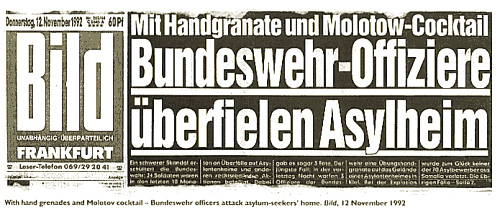
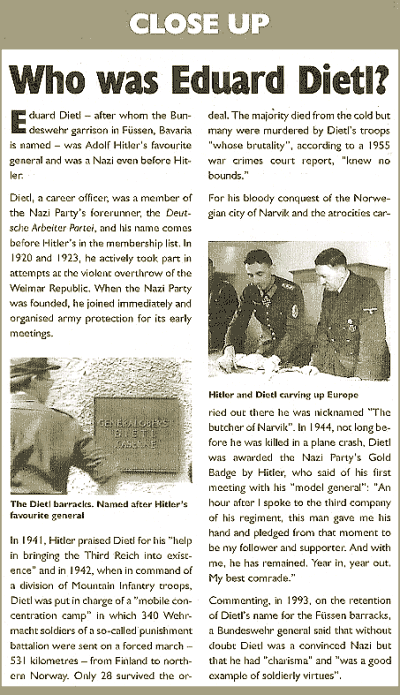
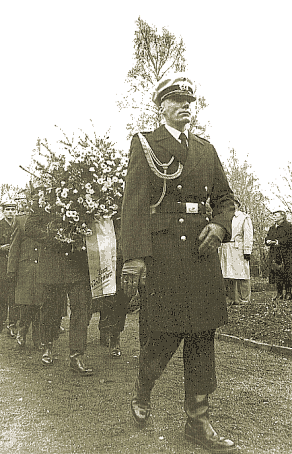
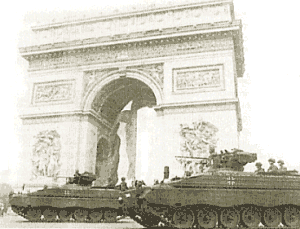
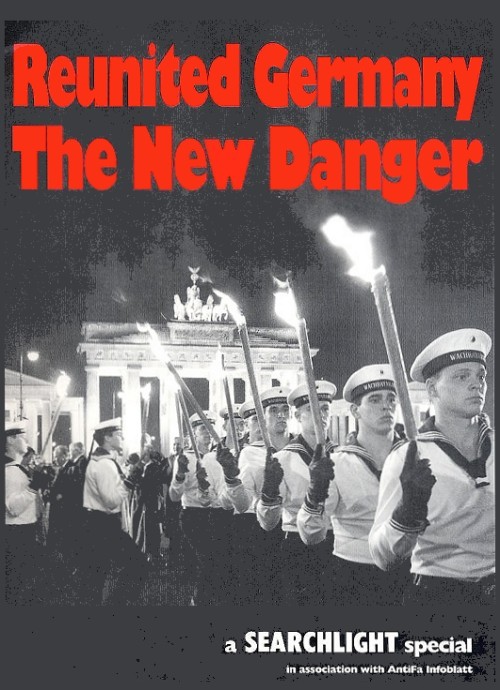
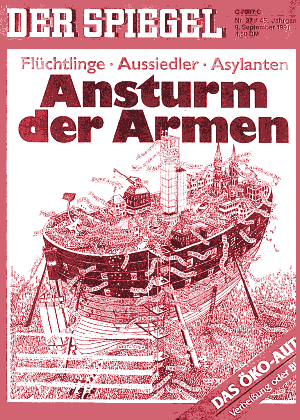
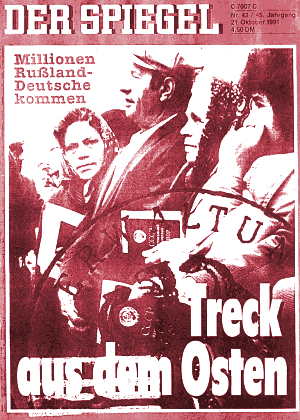
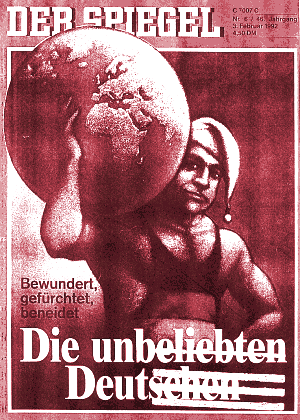
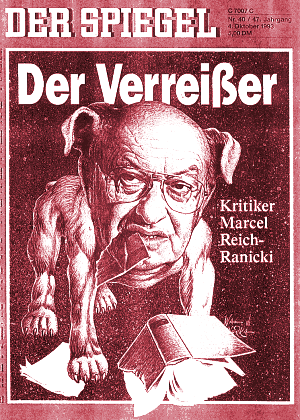
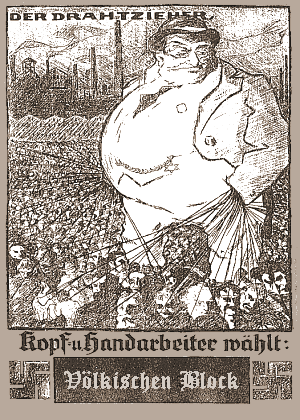
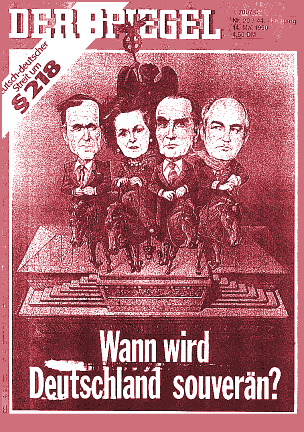
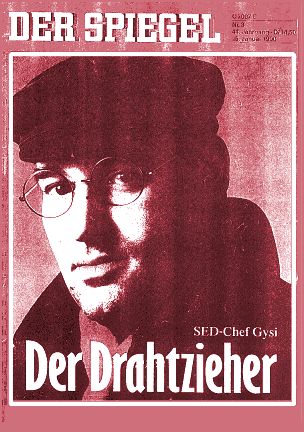
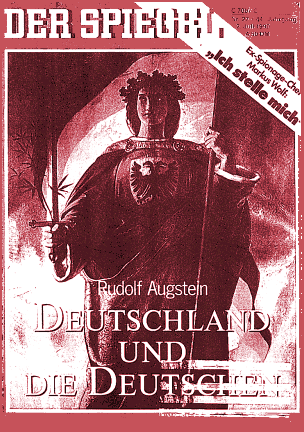
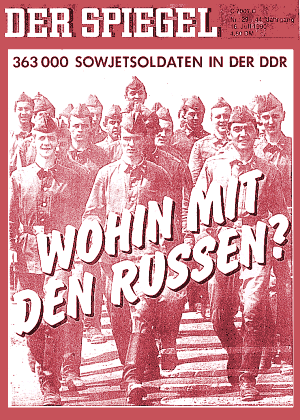
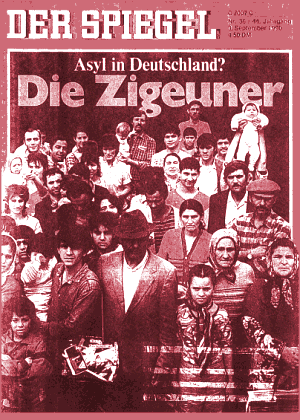

Subscribe to Searchlight Magazine
In Search of Refuge
by Kate Taylor
Kate Taylor interviews Ladislav Balaz, a Rom
refugee who formed 'Europe Roma' in order to help others who have fled
to Britain from some of the most appalling prejudice in Eastern Europe
Ladislav Balaz sits in his small office in north London, speaking
Romani with a family who seek help from him. He is well placed to
understand the problems they face in Britain, and he also possesses a
unique insight into the situation from which they have fled. For
Ladislav is himself a Rom refugee, forced to leave his home in the Czech
Republic due to the rising tide of racism being perpetrated against the
Romani people.
Unfortunately such prejudice has gained momentum in the years following
the collapse of the Eastern bloc. Arriving in Britain three years ago,
Ladislav encountered first hand the asylum process that has so far
refused to grant any Roma asylum status in this country.
It was against this backdrop that Ladislav formed Europe-Roma, an
organisation that seeks to give Romani asylum-seekers in Britain proper
legal representation, advice, accommodation and simple day-to-day
possessions that are so lacking. Ladislav works primarily with Roma from
Slovakia, Poland, the Czech Republic, Hungary, Russia and other eastern
European countries, "but I help all refugees", he adds. On arrival in
this country, more often than not, Roma are faced with desperate poverty
and expressions of racism. Yet they find themselves vilified by the
British media and politicians for trying to provide for their families.
The view perpetrated is that the Roma are solely economic migrants who
have no right to asylum in Britain.
But the situations from which they are fleeing stand in stark contrast
to this perception. In the Czech Republic, Ladislav encountered on a
daily basis the anti-Roma bias that has become entrenched in the
country: "every day they attack Roma ... skinheads and fascists march
and fight on the street ... I was in the same situation with my family -
it was horrible. But nobody would help us, nobody. And all the people
agree with the skinheads, it is like many years before, during Hitler."
In frank and moving terms, Ladislav relates the circumstances
surrounding the anti-Roma wall erected in Usti nad Labem, and also talks
of an attempted pogrom on Roma in a restaurant in the town of Ceské
Budejovice last year. Skinheads entered the building shouting "Sieg
Heil", "Gypsies to the gas chambers", and other racist slogans. Armed
with stones, bottles and even guns, the skinheads relentlessly attacked
the 40 Roma inside the restaurant. These are just two examples of the
racism that permeates Czech society and is directed towards the Roma. In
many instances the police and courts turn a blind eye and many
mainstream politicians espouse racist sentiments in public, effectively
sanctioning the actions that can ensue from such attitudes.
Ladislav believes that the treatment of the Roma is a litmus test for
any humane society. It is for this reason that he believes the Czech
Republic should not be allowed to join the EU. His quest to alert people
to the situation of the Roma in eastern Europe has taken him down many
avenues, even to the House of Commons, where last year he addressed
Parliament. Ladislav has a simple question: "I want to know why this
government gives support to the racist Czech Republic ... that is why
the Roma have to come here ... I've met Barbara Roche, Jack Straw,
Jeremy Corbyn, Dianne Abbott ... We are talking to everybody about the
situation in the Czech Republic. There it is a very hard life, you
know."
For those that do make it here against the odds, the ordeal is not
over. When they arrive they are accorded little in the way of help or
dignity as human beings. Ladislav estimates that around 6,000 Roma
refugees from eastern Europe in Britain, out of a world population of
around 10 million. Often Roma are dispersed widely across the country,
allowing them to have little contact with others in their situation, nor
to build up any sort of community. "These people are sent everywhere, to
Coventry, Colchester, Liverpool, Leeds, Birmingham, and so on. But I am
starting to drive everywhere to visit these people, to try and help
them."
Ladislav also mentions cases where families have been deliberately
separated from one another. One Roma refugee was sent to Manchester and
when his wife arrived in the country later, she was sent to Colchester.
"When this action was questioned, they were told, 'if you won't stay
there, we will give you your passport back and you can leave'." Ladislav
took this case to Refugee Action and the family now lives together. But
this case is just symptomatic of a wider attitude towards refugees that
is both endemic and unchallenged.
"Many people just do not understand what a refugee is. They just
understand what they hear and think these people are just after money,
that this is merely an economic problem, that they steal and so on. But
this is just not true."
Ladislav is a man whose own experiences are interwoven into his work
and his quest for justice for Roma refugees. It is not difficult to see
why he speaks so passionately about his desire for a better life for the
Roma. But the problems did not end for Ladislav after he arrived in this
country: he has struggled to gain refugee status, money is vastly
lacking, he lives in a five-bedroom house with 35 other people and he
has been attacked four times by racists. Throughout this period, life
was terrifying for Ladislav and his family and they would stay up all
night for fear of further assaults. He was told he could not be moved to
new accommodation because he only had temporary permission to stay in
Britain. But this has given him greater insight into the work that needs
to be undertaken in order to change things, no matter how small the
steps might have to be.
Sometimes it is the little things that bring hope to those in desperate
situations. At Christmas, Ladislav cooks for other Roma families and
collects clothes and toys for the children. But good intentions do not
always map out when one is faced with the bureaucracy and obstacles of
the asylum process. When Ladislav tried to deliver items to Oakington
detention centre on Christmas Day, an officer told him that they could
not take any of the presents. "I said look, this is detention not
prison, why do you do this? And he replied, this is policy."
It is stories such as this that have prompted Ladislav to change the
name of his organisation from Europe-Roma to the West European Roma
Rights Centre. This, he says, is to ensure that civil rights abuses
against the Roma in this country do not continue unchecked. "I want to
monitor this government, these police, these court cases and how they
deal with the Roma. Because many police, immigration officers, detention
centres and prisons break the law. When we find out which people are
bad, we will write reports about this and get more witnesses to speak
about the situation in the UK. We will hold people accountable. This is
my future in the organisation."
In Ladislav's opinion the Roma have every right to seek refuge in
Britain. "We are from a former English colony. At the moment, we, the
Roma, are not on the map. But we came into Europe from north India 1,000
years before. Now we don't have a country, everybody, everywhere is
fighting the Roma ... If this government accepts people from India, they
must accept the Roma. I have lots of friends from India and we have the
same language.
"Last month I spoke at a Fire Brigades Union conference. Many people
there asked me, 'Ladislav, do you have a country?' and I said no. They
again asked me, 'Ladislav, where are you from?' and I said the Czech
Republic. They say, 'then this is your country'and I say no, I was just
born there. But my parents and grandfather came into Europe from north
India, this is my country. And they all agreed and said Ladislav, you
must tell this situation to this government. They must learn this. I
said look, this government just likes to talk about money, and all they
are talking about is petrol and fuel and the weather, not about people.
This is very bad. It is the same in the Czech Republic. This is a bad
situation."
Despite Ladislav's dedication to his work, the strain on him personally
has begun to take its toll. The organisation receives no funding and
relies on small donations and help from individuals. The constant
travelling and frustration that accompany the job offer few rewards.
"It is no life for me ... I come home and everybody is asleep. I don't
see my children. You know, this is very hard. I am so tired all the
time, it never stops." But in spite of the effect on his personal life,
Ladislav remains determined to create a more positive environment for
Roma refugees in Britain.
"I visited the Refugee Council and I talked to them. I asked them what
they are doing, how they are dealing with the situation and they said to
me look, this is our job, not yours, go. This is very bad. I think that
if all the organisations in the UK go in together and fight bad
policies, it would be much better."
This is the vision that Ladislav holds for the future. The barbaric
racism that he encountered in the Czech Republic, alongside the inhumane
asylum process that he has faced personally in Britain, have led to a
desire to channel these experiences into something positive for others
who are overlooked and marginalised by society: "I want to be a man who
has power over Roma rights, this is my future. If we get no help, I will
do it myself."
Searchlight November 2002
The secret that lurks deep in the US far right
The Terrorist Next Door: The Militia Movement and the Radical Right By
Daniel Levitas
Thomas Dunne Books, St Martin's Press.507 pages, plus photographs.
$26.95
Reviewed by Leonard Zeskind
Despite an insidious invasion by McDonald's hamburger stands and the
omnipresence of Cable Network News, Europeans must find the political
culture of the United States baffling. Even access to the worldwide web
cannot adequately explain the fervid attachment to guns and religion
that shapes our national identity. Here myriad "Christian" movements
grip civil society more surely than Queen Elizabeth's crown fits her
head. Here the National Rifle Association can swing a Democratic
majority over into the Republican column. Where in Europe have "gun
rights" activists cast the deciding votes in an election? And where can
Brits and other Europeans learn the history and politics of that most
quintessential Americanist of white-wing movements: the Posse Comitatus
and its Christian patriot and militia descendants? Fortunately, Dan
Levitas has provided the answer in
The Terrorist Next Door: The Militia Movement and the Radical Right.
When asked to explain what the term "Posse Comitatus" means,
journalists usually begin by translating the words into the phrase "the
power of the county". They then discuss a drive for local control. How
else to understand a movement that opposes the current established
political and social order, yet stands in the oldest of American
traditions? That wraps itself in the red, white and blue, yet is revered
by the brownshirt and swastika armband. That is militant, even violent,
but attracts average white people as if it was a Rotary Club or
Brotherhood of Elks.
Well, Levitas successfully demonstrates that the Posse Comitatus is all
of the above, yet much more. He shows how it was founded on the
unequivocally racist and antisemitic theology of Christian Identity: the
belief that Jews are satanic, and that black people and other peoples of
colour are less fully human. That the Posse holds laws enacted by local,
state and federal legislatures as secondary to what they call "Christian
common law". That a fundamental divide separates the citizenship rights
of white Christians and those of all others. And he tells the story of
how this organisation and this ideology animated three decades of
far-right activity. First in the tax protest movement of the 1970s, then
in the farm crisis of the 1980s, and finally in the militia movement of
the 1990s, the Posse Comitatus phenomenon swelled with new recruits
drawn from the mainsprings of middle American life.
Levitas first encountered the Posse and other white supremacists two
decades ago, while working for a group called Prairiefire Rural Action
in Iowa. At that time he carried two portfolios. One was as an advocate
for family farmers facing economic and social dislocation. With the
second he fought off the hate-mongers blowing across the prairie like an
ill wind. Over the next years he became a preeminent student of racist
and antisemitic organisations and a leading activist in the movement to
oppose them. He wrote widely, including an encyclopedia entry on
antisemitism and as an editor and contributor to the 1992 volume,
When Hate Groups Come To Town. He has testified repeatedly as an
expert witness on hate groups for state and federal courts in the United
States, as well as for Canadian courts. With unmatched investigative
zeal and a multi-layered knowledge of his subject, Levitas has now
written the most comprehensive and (accurate) book on the Posse
Comitatus, the militia movement and the rural radical right.
The Terrorist Next Door weaves the broad tapestry Europeans need
to understand the particularities of this very American topic. It also
serves as a corrective to many of the mistaken notions that have plagued
other accounts. And it will fascinate the average non-specialist reader.
If it sounds like I'm a Levitas fan, I am. He and I have worked closely
together for 20 years, including years as friends of Searchlight
in the United States. But any objective critic will have to acknowledge
that he has told here a groundbreaking story.
Levitas traces the origins of the sheriff's posse back to jurisprudence
in 13th century England. He also nails the original Posse Comitatus Act,
passed in 1878, to the return of Southern-style white supremacy after
the Civil War. He shows how that law was designed to prevent Union
troops from protecting the rights and lives of newly freed slaves in the
post-Civil War South. Using a few main characters as his narrative
needle, he successfully threads the reader through the right wing in the
1950s and 1960s, when the battle to preserve Jim Crow segregation was
fought on an ever-shifting Cold War terrain. One moment McCarthyism
bolstered antisemitic conspiracy myths and decimated the communist and
socialist movements. In the next, President Eisenhower called in federal
troops and ensured the desegregation of schools in Little Rock,
Arkansas. By plumbing these depths, Levitas's history challenges some of
the received wisdom by which that period is understood.
Most importantly, Levitas finally corrects the record on the origins of
the contemporary Posse Comitatus. For almost 30 years, the FBI and
others have described one Mike Beach of Portland, Oregon as the Posse's
founder. Not so, Levitas writes. And he has the documentary evidence to
show that the founder was actually Bill Gale, and that Beach copied
Gale's propaganda and claimed it as his own. Gale is the central
defining character in this book. It was Gale who grafted the tax protest
movement onto the trunk of Christian Identity theology.
It was also Gale's ideas and personality that tortured the situation in
the rural Midwest. Family farmers, organised by the American Agriculture
Movement, rode tractors to Washington DC, staged courthouse protests and
fought both Presidents Carter and Reagan on federal agricultural policy.
The Posse Comitatus and other white supremacists sensed in this conflict
a harvest of new recruits. And they spread across the countryside like a
herd of locusts. For a while, the Posse turned the battle over the price
farmers received for their corn harvest into a blind alley fight against
the mythical "international Jewish banking conspiracy", instead of one
targeting multinational grain traders and politicians who benefited from
their largesse. Progressive farmers' organisations, faced with this
problem of antisemitism eating away at their own ranks, were divided
over solutions. Most wanted to ignore the problem at first. A few tried
to link the fight against antisemitism to a more general campaign under
the aegis of presidential candidate Jesse Jackson. The most effective
response, however, turned out to be confronting the problem directly.
Utilising his one-time position inside the farmers' advocacy movement,
Levitas skilfully parses these dilemmas.
In stark and intimate detail, Levitas also shows a parallel controversy
in the Jewish community. The Anti-Defamation League (ADL), the one
Jewish institution that presumed to be standing guard, was actually
asleep at its post. Virtually blinded by its own ideological
neo-conservatism, the ADL refused to take even its own polling data
seriously. As a result, alternative solutions grew up, outside already
established channels. And these solutions may yet be relevant in other
venues, beyond the American Midwest, where antisemitism raises its head
and draws a mass following.
Levitas continues his history through the 1990s, with the first
emergence of the militias and the bombing in Oklahoma City. By this
reckoning, the militia was the most recent mass incarnation of the Posse
Comitatus. And he demonstrates conclusively that it is impossible
completely to understand the former without a firm knowledge of the
latter. For Europeans unversed in the particularities of the American
far right, Levitas fully connects the Posse and the militia.
Understanding that connection should answer any lingering questions
about armed paramilitaries marching under the banner of Constitutional
fundamentalism. The footprint they leave is assuredly white; and not
some mottled "anti-government" or "populist" colour.
The story that will spin the reader like a top, however, is the
personal biography of William Potter Gale, who was an avowed and
ideological antisemite. To Gale, Jews ran the world in a nasty
conspiracy to destroy "white" civilisation just as surely as the sun
rose in the East. Jews were, to use Gale's oft-repeated slur, "Satan's
Spawn". His was an old sentiment, of course, reflected in Christian
discourse from the "Gospel of John" through Martin Luther and the
Protestant Reformation down to pre-Vatican Two Catholic theology. In
this case, however, Levitas proves that Gale himself was one of the
spawn. That's right. William Potter Gale, who asked the question "how do
you get a Jew out of the tree", and answered it "cut the rope", was
himself born of Russian Jewish immigrants. In fact, all of Gale's
paternal ancestors were devout Jews. Before Levitas, no one had
discovered this hidden story. And you will read about it in full detail
for the first time in The Terrorist Next Door.
This book pulls the reader through 350 pages of history with the ease
and grace of a good story, well told. An additional 35-page chronology
starts with the 13th century legal origins of the concept of a posse
comitatus as found in medieval British law and ends with the terror
bombings of 11 September 2001. Three appendices help flesh out matters
and pictures from the Gale family photo album add to the drama. Add over
100 pages of source-drenched endnotes, and finally a scholarly and
accessible text has arrived to tell this most American of stories to the
whole world.
This book will be available from Searchlight soon or via
www.amazon.co.uk
Copyright © 2002, Searchlight
Book Review
Shared Sorrows by Toby Sonneman
University of Hertfordshire Press Review by Kate Taylor
LAST MONTH, "the campaign group Liberty, acting for the European Roma
Rights Centre and six Czech Roma, entered a British courtroom in a bid
to highlight the depth of anti-Roma bias that pervades the British
government. Human rights activists wanted to declare that pre-clearance
checks, which stopped mainly Czech Roma boarding planes from Prague
airport, contravened the 1951 Geneva Convention, which allows those who
are persecuted in their country of origin to apply for asylum in a safe
country.
But Mr Justice Barton ruled the screening by UK immigration officers,
which has been in place since July 2001, legal. The Geneva Convention,
he said, did not prevent David Blunkett, the Home Secretary, "from
taking steps to prevent a potential refugee from approaching [the UK]
border in order to be in a position to claim asylum, or [making it] more
difficult for them to do so".
That so many Roma not only are refused asylum upon reaching these
shores, but are also prevented from leaving a country where they are
routinely assaulted and even killed, shows a stark refusal on the past
of Western governments to admit that Roma are subject to a catalogue of
human rights abuses.
It is not just in the present day that racism against the Roma is
rendered invisible. During the Nazi Holocaust, the Roma were the only
other group, alongside the Jews, to be singled out for complete
extermination. Yet until recently, the Roma have had little public
acknowledgement of their tragedy.
A number of works have sought to correct this imbalance in the past
decade. Until now, however, most have been from the perspective of
academic distance. Published last month. Shared Sorrows, by Toby
Sonneman adopts an altogether different angle. For Sonneman, "real
recognition is dependent upon caring". And that means abandoning
scholarly detachment in the name of taking us close to the real
suffering of real people.
The intention of Shared Sorrows is to tell a very human story
about a family of Gypsies who escaped the fate that befell so many
others during Nazi rule. It is the author's biographical detail that
renders the book so compelling. On the morning after Knstallnacht, Toby
Sonneman's Jewish father walked through broken glass to apply for the
visa that would save his life. In examining her own family history, the
author discovered the similarities between the fates of the Jews and the
Gypsies in the Holocaust.
Sonnernan travelled with an American Gypsy survivor to Munich, where
she stayed with Rosa Mettbach, another Gypsy survivor. Through Rosa's
story, Shared Sorrows tells the story of a Gypsy family against
the backdrop of Sonneman's own Jewish family.
Rosa identified herself as Sinti. The Sinti are a sub-group of the
ethnic Gypsy population who settled in northern Europe in the eariy
1400s. Bom in Austria, but living in Germany, Rosa lost her entire
family during the Holocaust. Her arm bears the permanent memory of her
time in Auschwitz - the number seared into her skin by the Nazis is
preceded by the letter Z for Zigeuner, the German word for Gypsy,
which is derived from a Greek root meaning "untouchable" and a German
word for "vagrant".
For the author, the sight of the tattoo brings back painful memories:
"When did I first learn to connect images of unspeakable horror and
humiliation with these brands forged on human skin? When did someone -
my mother? - first explain the name? Behind a closed door, in a whisper
chocked by regret: 'Auschwitz'.
"There. There in Auschwitz and in Chelmno, there in Belzec and in
Treblinka, there in Sobibor and in Majdanek, there were other sorts of
ovens, ovens that produced not sweet pastries but only bitter ashes. In
the Gypsy language, Romanes, there is a saying: 'Our ashes were
mingled in the ovens'. There had our peoples been inextricably bound."
This is the message that Rosa's story gives us. The shared sorrows of
two people have produced a bond that has and will survive the course of
history. It is a history eked with ethnic persecution, racism and
genocide. But it is also a history that has much to celebrate. Both
peoples have shown strength and courage in the face of unspeakable
horrors and this has made their identities all the stronger.
In November 1941, Rosa's family was deported to the Lodz ghetto, but
Rosa managed to escape. She was later captured and sent to Lackenbach.
Rosa escaped again, but her family were not so lucky. They were among
the 5,000 Austrian Gypsies deported from Lodz and killed at Chelmno.
Rosa was later arrested and sent to Auschwitz. Her tenacity yet again
showed its face when she escaped from a labour camp in eastern Germany.
She was sent to jail and was then returned to the labour camp where she
was tortured and put in a dark and narrow cement bunker for four weeks.
But through it all, Rosa survived. And that is what Shared Sorrows
is about: the survival of a people against the odds, both Jews and Roma.
It is the lessons from the past that need to be applied if they are not
to be repeated. The situation for many Roma in both eastern and western
Europe is intolerable. That they are not granted the refuge
to which all of humanity is entitled |i highlights our failure to learn
from the black spots in history. It is that history that Toby Sonneman
seeks to keep alive. In doing so, she has done a great service to those
who wish to keep the flames of collective memory burning. But as
Sonneman herself notes, "Conscience is formed by memory, and
these two strands must twist together into one. For memory is essential
- but memory alone is not enough."
Shared Sorrows is essential reading for those who wish to
understand better the tragedy that befell the Roma in the Holocaust. The
power of the book comes from its focus on personal testimonies. It is
through these individual stories of struggle and courage that we begin
to see past the statistics and grant a voice to those who cannot speak.
Searchlight November 2002 11
GERMANY
Fascists routed at the polls
and on the streets
From Tammy Wild in Berlin
GERMANY'S FAR RIGHT took a battering in September's elections to the
federal parliament, the Bundestag. The hard-fought duel between the
Social Democrat-Greens coalition, led by the incumbent Chancellor
Gerhard Schroder, and the conservative CDU-CSU bloc, led by the
right-wing Bavarian Prime Minister Edmund Stoiber, culminated in the
reelection of the coalition but with a reduced majority.
Commentators were unanimous that the return of Schroder as Chancellor
was primarily a negative vote against Stoiber, whose policies included
support for US plans to wage war on Iraq and attacks on the social
welfare system.
For the fascists the results were catastrophic. They failed to make the
leap over the 5% barrier needed to win seats in parliament. But while
the decline of the Republican Party continued everywhere, the party
barely reaching 2% even in its former strongholds in the southern states
of Baden-Wiirttemberg and Bavaria, the nazi German National Democratic
Party (NPD) was able to celebrate some slight local gains in eastern
Germany.
In Brandenburg, the NPD managed an average of 1.5% of the vote - its
highest score nationally - and in Saxony it scored 1.4%. In some small
villages in Saxony, however, between 7% and 10% of voters supported the
NPD, which shows how deeply entrenched the party is in a few areas.
Altogether 214,000 people voted for the NPD nationally but this was not
enough to make the party eligible for cash refunds from the state for
its campaign.
The fascist profile was altogether lower than in the national elections
four years ago. The German People's Union did not contest the elections,
the Republican campaign looked jaded and the NPD ran into anti-fascist
opposition, its events being generally poorly attended.
A new right-wing force, the Law and Order Party (PRO), led by the law
and order crazed judge Ronald Schill, was also wiped out as far-right
voters plumped for Stoiber. Even in its Hamburg stronghold, where last
year it polled 19.4%, the PRO was only able to win 4% and nationally it
took a mere 0.8%.
Aware that it stood no electoral chance and still fearful of being
banned, the NPD has been trying to maintain the frantic pace of activity
it has established since soaking up so many activists from banned nazi
grouplets.
On 14 September, an NPD demonstration in the southern city of Freiburg
im Breisgau turned into farce when, confronted by 15,000 anti-fascists,
the 108 nazis were given an area of 30m by 70m in which to march
silently in front of the station. In a further humiliation, the police
ordered them to remove their boots and march in their socks, to the
great hilarity of the antifascists who had been mobilised by the DGB
trade union federation.
The day turned into a massive celebration by antifascists who held a
rally and listened to speeches and rock music which boomed out from two
huge stages. The anti-fascist demonstration and rally, under the slogan
"Freiburg stands up", was backed by a broad . alliance of trade unions,
political parties, anti-fascist groups, youth organisations, churches
and local businesses, including the city's major department stores.
The NPD's next big outing should have been a march in Munich on 12
October against the Crimes of the Wehrmacht exhibition. Last time the
exhibition was there, in February 1997, the nazis mobilised almost 6,000
people and were supported by right-wing Bavarian conservatives. This
time, they could only muster 300 and were unable to complete their march
through the city centre after 3,000 anti-fascists rallied outside the
DGB's headquarters and blocked their path. The police prevented the
nazis from wearing their usual "bomber jacket and boots" uniforms,
banned them from chanting extremist slogans and arrested 20 of them. It
was another humiliation.
In the NPD's current plight, all that it needed was Nick Griffin,
leader of the British National Party, turning up with his begging bowl.
Griffin recently attended the "Pressefest" of the NPD's rag Deutsche
Stimme, where he was a co-speaker with a horde of convicted nazis
who used to belong to violent fascist organisations that are now
illegal. He also featured as a main speaker at the NPD's "summer
university" in Saarbriicken, where he held forth about the
"achievements" of the BNP.
It is ironic that, after publicly claiming that the BNP Chancellor
needs to move away from Hitlerites, he has opted to Gerhard surround
himself with and be applauded by hundreds of Schroder them, all
belonging to a party the German authorities celebrates want to ban on
the grounds of its nazism. victory
Searchlight November 2002 27
RUSSIA
Russian naasgive the
traditional fascist salute
From Mara Vladimirova in Moscow
Registration of antisemitic party provokes controversy
A NEW RADICAL NATIONALIST PARTY with an openly antisemitic leadership
has received official recognition in Russia. The National Power Party of
Russia (NDPR), which the Russian Justice Ministry registered on 16
September, held its inaugural meeting in February in a small town near
Moscow, attended by 193 delegates representing all 65 regions of the
Russian Federation. Wonyingly, three quarters of the delegates were army
officers. The rest included editors of various national-patriotic
papers, guests from Ukraine and Belarus and, interestingly,
representatives of the anti-globalist movement.
Also present were representatives of well known nationalist
organisations and parties such as the nazi Russian National Union (RNE),
the Russian Party, the Russian People's Party, the Officers' Union and
the Union of Pan-Slavic Journalists.
The three elected co-chairmen of the NDPR are all leaders of parties
that have joined together in this new bloc. Stanislav Terekhov, head of
the Officers' Union, is best known for his participation in the armed
attempt to oust the former president Boris Yeltsin in October 1993. He
was already considering creating a new structure at that time. Boris
Mironov, a former minister and leader of the Russian Patriotic Party,
and Alexander Sevastyanov, editor-in-chief of the newspaper
Natsionalnaya Gazeta,
are both notorious for making antisemitic statements like those on the
NDPR's website.
The NDPR's programme resembles that of the Officers' Union. Their ideal
for society reflects a nostalgia for Brezhnev's time intermingled with
some elements of pre-revolutionary Russia, such as the territorial
division of the country into clearly defined provinces. All elements of
society would be controlled by the state, which would own all land and
major factories. Independent small businesses would only be allowed in
the service sector.
The party has a strictly "no fun" policy for young people, who would be
corralled into sporting and
military-patriotic clubs. Western music and films would be banned. The
death penalty would be fully restored and abortion would be severely
restricted.
In foreign policy, the NDPR aims for reunification with Ukraine and
Belarus, now independent states, the strengthening of the army and an
aggressive policy of alliance with North Korea, China and Iraq, which
were all more or less allies of the former Soviet Union.
The NDPR's published programme for the wholesale reorganisation of life
in modem Russia amounts to 13 pages referring to the various social
strata of Russian society, including professional and state workers, the
technical intelligentsia, teachers, scientists and small business
people, but mainly to the army officers who founded the party. All these
groups have lost the relatively privileged social positions that they
occupied before Gorbachev's perestroika policy. Most of them have still
not found their place in the new Russia and feel lost and dissatisfied
with life. While such people are numerous, few are so politically active
as to be ready to participate in political organisations.
The leader of the People's National Party, Alexander
Ivanov-Sucharevsld, who also backs the NDPR, has great influence among
skinheads and is a wild antisemite. Although there are no directly
antisemitic statements or even insinuations in the NDPR's programme, if
one follows the statements of its leaders it quickly becomes clear that
Jews are the main enemy. The party emblem is the so-called kolovrat, a
stylised swastika used in various forms by many Russian
national-patriotic organisations.
The registration of the NDPR, with a membership of 11,000, provoked
furore in the media, with a major article in Izvestia and discussion on
the popular television programme Itogi and radio news broadcasts.
Questioned by journalists, the head of the Justice Ministry department
responsible claimed that the content of the NDPR documents presented for
registration was consistent with the Russian Constitution. A few days
later he rounded on the media saying, "Why didn't the mass media warn
the Justice Ministry, if journalists were so well informed about the
Searchlight November 2002 30
real activity of NDPR and even had audio and video material from its
foundation meeting?"
Eventually, a ministry official promised to check the documents and
activities of the NDPR again and promised that any criminal acts by the
party would be prosecuted. The NDPR is the first radical nationalist
party to be registered since the adoption of a new law under which only
registered political parties can fight elections.
One day after the NDPR's registration, the Justice Ministry gave the
go-ahead to yet another radical nationalist party with a brazenly
antisemitic platform, the People's Patriotic Party of Russia, headed by
the former Defence Minister Igor Rodionov. Vladimir Pribylovsky, an
analyst of nationalism at the Panorama political research centre,
believes that the authorities intend to make it easier to prosecute
nationalists by
getting them out in the open. The media fuss over the registration of
the NDPR is somewhat sudden, considering that die various fascist and
ultra-nationalist parties that have now come together have existed - and
been officially registered - since the beginning of the 1990s.
Anti-fascists are asking whether the latest development is a sign that
society is ready to admit the existence of fascism and extremism in
Russia and confess that the state structure is rotten with the same
sickness right up to the level of top ulterior and Justice Ministry
bureaucrats and the police.
Judging by a telephone interview with Viktor Korchagin, a senior NDPR
executive, by The Moscow Times, it appears that even the leaders
of the NDPR were surprised with the public sensation caused by the
party's registration.
From Mina Sodman in St Petersburg and Jean Raymond in Moscow
Ministry insists murder was not racist
CRITICISM OF THE RUSSIAN GOVERNMENT'S stance on racism has continued to
mount along with the level of racist violence. Although President
Vladimir Putin has made several declarations against racism, the reality
at grassroots level is rather different with little being done to
implement the tough action promised by the government.
"A sham is the best way to describe the government's policy of strongly
worded declarations." Lyudmila Alexeyeva, head of the Moscow Helsinki
Group, told The Moscow Times, adding that "a lot is done solely
to create a good image of Russia abroad. For example," she said, "when
skinheads beat up the son of a diplomat, we see a flurry of activity by
the authorities but when a common Azen falls victim, they don't care."
A major stumbling block of government policy has long been the almost
blind refusal of the authorities to recognise that certain crimes are
racist. In the majority of cases brought against skinheads, racism is
not acknowledged as a motive even when the victims are foreigners or
belong to ethnic minorities from the Caucasus.
On 10 September, a Senegalese student was attacked and savagely beaten
by a gang of seven youths in Moscow's Marxistskaya tube station. Three
days later a middle-aged Azen was killed in St Petersburg. Witnesses
reported that Magomed Magomedov was attacked by a 20 to 30-strong mob of
skinheads in the Pnmorsk district, near the stall from which he sold
watermelons to scratch out a meagre living. According to the police he
died from head injuries caused by a "metallic object". Witnesses added
that one of the attackers made a video of the entire incident.
Later in the evening, when the news of the killing started to
circulate, the press department of the Federal Ministry of Internal
Affairs (MVD) declared firmly, before even a preliminary investigation,
that Magomedov's murder had had a "private motive" and had absolutely
nothing to do with race hatred.
The MVD press officer also stated that a maximum of ten people took
part in "the street fight" and that stories about a video-recording and
the extremist background of the attackers represented "nothing but
destabilising rumour".
...
Searchlight November 2002 31
NETHERLANDS
From Jeroen Bosch of Alert! in Utrecht
Academic supports nazi 'Black Widow'
AN ACADEMIC at the University of Amsterdam has been suspended after he
wrote a letter of solidarity to a veteran nazi. Dr Boudewijn Heuts of
the Institute for Life Sciences contacted Florrie Rost van Tonningen in
September after a television broadcast, called Het Zwarte Schaap (the
Black Sheep), in which she was confronted by people critical of her
ideas and work.
His letter said: "Like you, I hope that at least a part of, for
example, the Northern European or the Australian race will be saved by
(so-called 'nazi' or 'racist') groups, who will make themselves strong
enough not to mix with other races".
Florrie Rost van Tonningen, 88, is the widow of Meinoud Rost van
Tonningen, a leading official of the National Socialist Movement (NSB)
in The Netherlands before and during the Second World War. Known as the
"Black Widow", Rost van Tonningen still advocates nazism and remains a
highly respected figure in international nazi circles, the more so
because she knew Hitler and Himmler personally.
Dr Heuts said he wanted to show her some light at the end of her life,
which has been so tough for her. "I had to do that according to my
conscience," he declared, "I wanted to take a stand against what has
been done to her."
His letter also complained that the television programme did not try to
understand "what they did to you by killing your husband". Officially,
Meinoud Rost van Tonningen died in a prison accident after the war, but
his widow claims that the Dutch government ordered his murder.
Rost van Tonningen's villa has since the early 1970s been a place of
nazi pilgrimage, where nazis of all ages gather for lectures and ancient
Teutonic rituals. At the start of the 1980s, she founded the Consortium
De Levensboom, which distributes nazi literature, organises meetings and
tries to promote the formation of a new fascist party in The
Netherlands. To this end she negotiated with the late Hans Janmaat of
the right-wing extremist Centrum Democraten and Wim Vreeswijk of the
Nederlands Blok, the now defunct sister party of the Vlaams Blok in
Belgium.
Rost van Tonningen is still a cult figure in Germany and lectures to
enthusiastic audiences of SS veterans and families. She often attends
the annual Yzerbedevaart (Iron Pilgrimage) in Diksmuide, Belgium, where
she is guaranteed a warm reception from her hard-core nazi fans.
At the beginning of the 1990s, Rost van Tonningen was convicted for
circulating racist and antisemitic literature and fined for insulting
the Jewish community. She was not deterred and continues to distribute
nazi hate books in English and German. '
Her much publicised plan to turn her villa into an exhibition centre
for nazi paraphernalia and study centre for "racial research" went awry,
when the local mayor denounced her. She then tried to buy a property
near Dortmund, Germany, formerly owned by Himmler, signing off her
abortive fundraising appeal with the SS motto Unsere Ehre heisst Treue.
She currently lives in a bungalow in Waasmunster.
Searchlight November 2002 28
Mike Cohen
24 July 1935 - 2 October 2002
As we were preparing this edition of Searchlight, our
photographer, Mike Cohen, passed away. The photo on the front cover of
this month's magazine was the last one he took for us. Next month's
Searchlight will include tributes to Mike, accompanied by his photos.
Farewell dear comrade and friend, from all of us at Searchlight.
hagalil.com
31-10-02 |